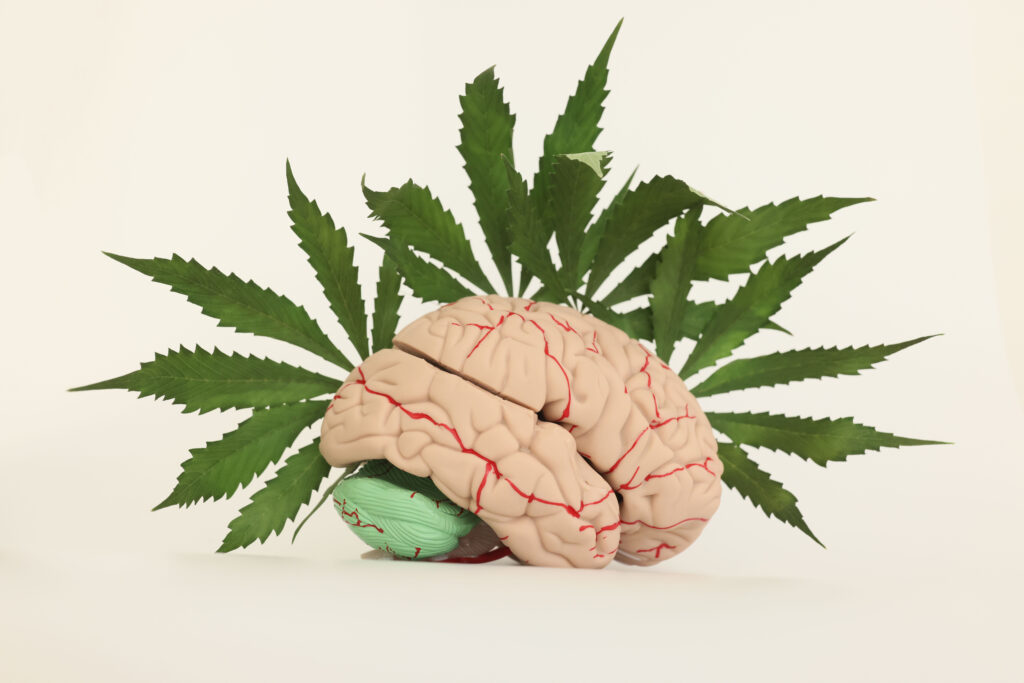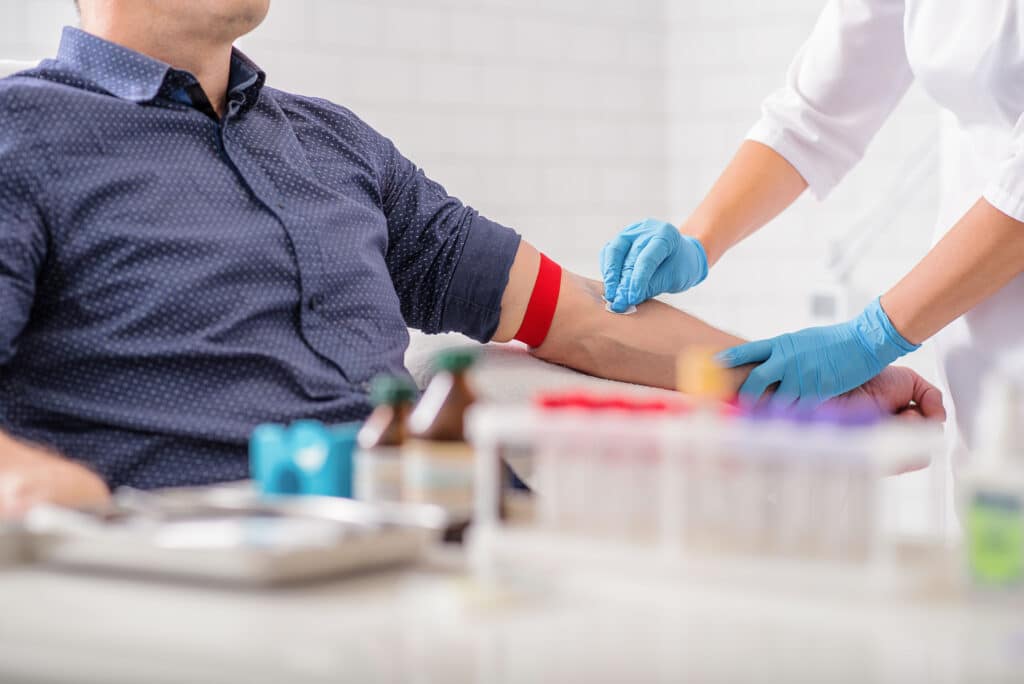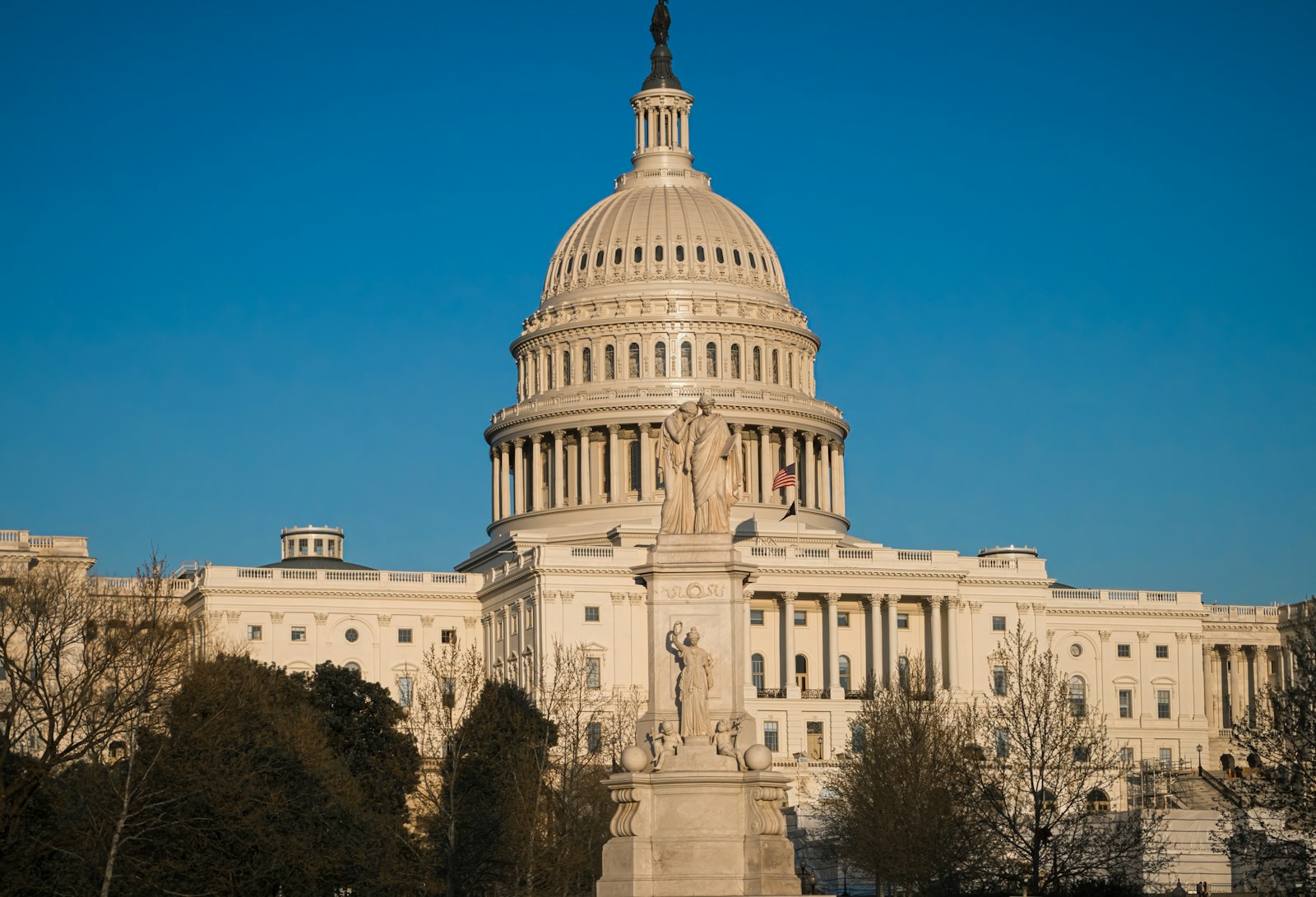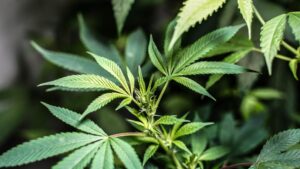Cannabis
New Study Backs Up Cannabis Never Led to Psychosis
Published
8 months agoon
By
admin
One of the going lines for those opposing cannabis, is that it increases incidences of psychosis, like schizophrenia. Now, a new study greatly contradicts this, to the point of saying nearly the opposite. Why do such contradictory results exist, and should we be worried that cannabis increases the risk of psychosis?
This article is the express opinion of the writer.
New study on cannabis and psychosis
Psychosis definition according to the National Institute of Mental Health: “Psychosis refers to a collection of symptoms that affect the mind, where there has been some loss of contact with reality. During an episode of psychosis, a person’s thoughts and perceptions are disrupted and they may have difficulty recognizing what is real and what is not.” It is not more specific than this.
The study is called Early Detection and Intervention for the Prevention of Psychosis Program (EDIPPP), and was conducted on multiple sites with clinical trials. Eleven different universities took part in it. The goal was originally to show that using cannabis is dangerous for people with a higher risk of psychosis.
For the study 210 ‘clinically high risk’ patients who smoke cannabis, were followed for two years. This was not an adults only study, and the average age of participants was 16 years old. 81% were enrolled in school when the study started. 61% of subjects were white, and 42% of the test population was female. Researchers tracked medication taking, brain function, and other observed behaviors to gather data. This was on on-site study.

According to the study data, not only was cannabis not related to an increase in psychotic onset; but the data indicates it didn’t affect general brain function negatively, or produce clinical symptoms. Quite the opposite, actually. Those who used cannabis were found to have higher functioning brains, with a greater capacity through time, for sociability. According to the team, “CHR youth who continuously used cannabis had higher neurocognition and social functioning over time, and decreased medication usage, relative to non-users..”
This study goes in contrast to many others, like this one out of Denmark; which leaves us with the notion that from 1995-2010, problematic marijuana use with schizophrenia increased from 2% to 4%. This study only used medical files, however, and spoke to no participants. Much like many investigations of this nature, it means study investigators had 0% control over information collection, and all information was collected for other purposes.
The new study doesn’t simply assess previously collected information with a hope of drawing some connection to make headlines. It’s a developed study that used participants who signed releases to be in it. The Denmark study, in comparison, suffers from a lack of contact with participants, while also seeking to measure a specific condition, which isn’t technically measurable. Perhaps the Denmark study, and others of its kind, are some of the better examples of how research and headlines are used to sway our opinions, even when based on nothing.
Why this is silly
We don’t question whether alcohol causes health damage, or whether opioids do. We’re all pretty okay with the line that they do, because we see it in real life. Especially with alcohol, which much like cannabis, has been used throughout recorded history, in some capacity. We know it causes severe issues from all this time, yet this same information can’t be said distinctively for cannabis. It’s questioned, and argued over, yet after all these years, there’s no obvious answer. Or, at least, there’s no obvious answer that it causes damage.
Natural medicine traditions have reported on the properties of different plants for thousands of years. And to be clear, they often speak of cannabis having somewhat psychotic effects. But its never spoken about as a lasting condition; and we’re all aware that when on a drug, we are supposed to experience something. Yet, somehow, despite it being the most widely used drug outside of alcohol, and with thousands of years of accumulated experience showing no lasting damage…
Can you see where I’m going with this? We’ve had thousands of years with weed collectively, and somehow no one was categorically worried about lasting damage in other cultures. Yet today, all of a sudden, it causes psychosis? Forget that the government regulates synthetic opioids that take out close to 100,000 people yearly in the US alone. It’s obviously the psychosis of cannabis – which no one ever sees beyond someone currently high – as the thing to worry about.

If weed were really a problem in this way, it would be reflected in all those ancient texts as possibly causing some form of long-term craziness. It would be seen regularly in society, considering how prevalent weed use is. Now think to yourself if you know even one person who went crazy because of smoking weed.
Beyond these points of logic, there’s the idea that the research world is an incredibly competitive place, wherein some must continue to publish findings to keep their positions. That’s a lot of pressure. Maybe enough to encourage some to put out sub-par efforts just to keep up. To give an idea of just how silly the world of research is getting, check out this article recently published in the Guardian, which attacks the topic of research retractions.
In 2022, for example, a massive 5,500 retractions had to be made for published scientific research. There is so much research published yearly, that this accounted for only one in 1,000. However, back in the year 2000, there were only 40 retractions, for comparison. Its best to remember that these are the ones that got challenged in some way; plenty of research that desperately needs to get retracted, doesn’t get enough exposure or heat for that to happen. Meaning those results stand. Some estimate that at least 100,000 studies should get retracted yearly, or more.
The issue with measuring psychosis
Psychotic issues like schizophrenia, are psychotic issues because a doctor defines them that way. There is no medical definition for any of these conditions, regardless of how many the DSM talks about, or how much you don’t like that sentence. This is not opinion. Not a single one has a definable and testable ability, and this is understood in the medical world, even if its flubbed a bit for consumers. So if the right person says you have one of these disorders, then voila, you do. If they don’t, then its just your friends speculating you’re crazy, according to today’s psychiatric process.
We’ve all seen some crazy people in life. There are definitely people with a screw loose, for whatever reason its like that. Maybe they were born with issues, maybe they got hit in the head, or were highly abused, or exposed to chemicals. Regardless of why a person ends up as the ‘crazy person,’ we know there is some line somewhere, and that past a point, we can see it. It’s not about one specific behavior either, but often a pattern of behaviors, which is indeed what the therapists look for.
When it comes to diagnosis, different doctors often give different ones for the same person. It happens all the time; and the only thing the doctors have in common is some kind of degree. Now consider how often doctors disagree and argue over different topics. The whole reason we develop tests when possible, is to give a clarified answer; so the right treatment measure is taken, and opinion is taken out.

If you have a broken arm, it comes up in an X-ray. If you have diabetes, it shows in your insulin levels. If you have a tumor, that can be biopsied to understand the cancer better. A virus can be detected, as can bacterial and fungal infections, as well as a host of other medical issues. These are all done through medical diagnoses, which define something that can be measured. No psychiatric issue comes with this kind of test, which means 100% of diagnoses are personal opinion. This is not debatable. Those personal opinions might (or might not) be based in education, but they are still personal.
Beyond what this means to shoving psych meds down people’s throats, it comes with another negative implication. If we can’t really measure these things in a definable way, how can any aggregated research mean anything? Since there is no definable test, and the doctor is such an important figure in each diagnosis; we’d have to know each doctor, to understand what they were responding to in each case. Any aggregated research is just a piling up of opinions, for which we have no idea what spawned them in the doctor’s mind.
Conclusion
While I hope this recent study works to get some reality back into a horribly demented research world; I have doubts. I expect as different forces fight to keep things illegal, we’ll hear much more in the future about this cannabis psychosis that no one actually sees.
Welcome everyone! Cool that you’re here! We appreciate you making your way to Cannadelics.com; where we report on the goings-on in the cannabis and psychedelics spaces. Come around regularly to get all the updates; and check out the Cannadelics Weekly Newsletter. It’s got some great product promos, along with the news.
Related
You may like
Cannabis
Senate Leadership Pushes End of Federal Prohibition Of Cannabis
Published
2 days agoon
May 3, 2024By
admin
In a big week for the marijuana industry and a surprise to most of the industry, Senators Schumer (D-NY), (Murray D-WA), Wyden (D-OR), Cory Booker (D-NJ) and 14 others have deduced to follow the public and make a change. As of today, Senate leadership pushes end of federal prohibition of cannabis.
Senator Patty Murray, a senior member and former Chair of the Senate Committee on Health, Education, Labor, and Pensions (HELP) has long been a champion of veterans. This falls in line with PTSD treatments and with the American Medical Association’s backing of rescheduling and more medical research to see how the cannabis plant can help more patients.
RELATED: California or New York, Which Has The Biggest Marijuana Mess
They have reintroduced the Cannabis Administration and Opportunity Act (CAOA), legislation that would end the harmful federal prohibition of cannabis by removing cannabis from the list of federally controlled substances and empowering states to create their own laws. This legislation would be a historic step toward rectifying the failed policies of the War on Drugs and would help federal law better reflect the will of the vast majority of Americans, 91% of whom believe that cannabis should be legalized for either adult or medical use.
“It is far past time that the federal government catch up to Washington state when it comes to cannabis laws. This legislation is about bringing cannabis regulations into the 21st century with common-sense reforms to promote public safety and public health, and undo deeply unjust laws that have for decades disproportionally harmed people of color,” said Senator Murray. “The Cannabis Administration and Opportunity Act will help set us on a safe and responsible pathway to legalization—I’ll keep working to secure the necessary support to get it done.”

The Cannabis Administration and Opportunity Act establishes a federal regulatory framework to protect public health and safety, prioritizes restorative and economic justice to help undo harm caused by the War on Drugs, ends discrimination in the provision of federal benefits on the basis of cannabis use, provides major investments for cannabis research, and strengthens worker protections. By decriminalizing cannabis at the federal level, the CAOA also ensures that state-legal cannabis businesses or those in adjacent industries will no longer be denied access to bank accounts or financial services simply because of their ties to cannabis.
The Cannabis Administration and Opportunity Act:
- Protects public health by:
- Establishing a Center for Cannabis Products to regulate production, labeling, distribution, sales and other manufacturing and retail elements of the cannabis industry.
- Instructing the FDA to establish standards for labeling of cannabis products, including potency, doses, servings, place of manufacture, and directions for use.
- Establishing programs and funding to prevent youth cannabis use.
- Increasing funding for comprehensive opioid, stimulant, and substance use disorder treatment.
- Protects public safety by:
- Removing cannabis from the Controlled Substances Act and eliminating federal prohibitions in states that have chosen to legalize medical cannabis, or adult-use cannabis.
- Retaining federal prohibitions on trafficking of cannabis in violation of state law; establishing a grant program to help departments combat black market cannabis.
- Requiring the Department of Transportation (DOT) to create standards for cannabis-impaired driving.
- Directing the National Highway Traffic Safety Administration (NHTSA) to collect data on cannabis-impaired driving, create educational materials on “best practices,” and carry out media campaigns.
- Incentivizing states to adopt cannabis open container prohibitions.
- Regulates and taxes cannabis by:
- Transferring federal jurisdiction over cannabis to the Alcohol and Tobacco Tax and Trade Bureau (TTB).
- Eliminating the tax code’s restriction on cannabis businesses claiming deductions for business expenses, and implementing an excise tax on cannabis products.
- Establishing market competition rules meant to protect independent producers, wholesalers, and retailers and prevent anti-competitive behavior.
- Encourages cannabis research by:
- Requiring the Government Accountability Office (GAO) to study and report on metrics that may be impacted by cannabis legalization.
- Requiring the Department of Health and Human Services (HHS) and National Institutes of Health (NIH) to conduct or support research on the impacts of cannabis.
- Requiring the VA to carry out a series of clinical trials studying the effects of medical cannabis on the health outcomes of veterans diagnosed with chronic pain and post-traumatic stress disorder.
- Requiring the Bureau of Labor Statistics to regularly compile and publicize data on the demographics of business owners and employees in the cannabis industry.
- Establishing grants to build up cannabis research capacity at institutions of higher education, with a particular focus on minority-serving institutions and Historically Black Colleges and Universities.
- Prioritizes restorative and economic justice by:
- Using federal tax revenue to fund an Opportunity Trust Fund to reinvest in communities and individuals most harmed by the failed War on Drugs.
- Establishing a Cannabis Justice Office at the Department of Justice’s Office of Justice Programs
- Establishing a grant program to provide funding to help minimize barriers to cannabis licensing and employment for individuals adversely impacted by the War on Drugs.
- Establishing expedited FDA review of drugs containing cannabis manufactured by small businesses owned by socially and economically disadvantaged individuals.
- Directing the Secretary of Housing and Urban Development to establish a grant program to provide communities whose residents have been disproportionately affected by the War on Drugs with additional funding to address the housing, economic, and community development needs of such residents.
- Initiating automatic expungement of federal non-violent cannabis offenses and allows an individual currently serving time in federal prison for nonviolent cannabis offense to petition a court for resentencing.
- Disallowing the denial of any benefits or protections under immigration law to any noncitizen based on their use or possession of cannabis.
- Prevents discrimination in the provision of federal benefits against people who use cannabis.
- Strengthens workers’ rights by:
- Removing unnecessary federal employee pre-employment and random drug testing for cannabis
- Ensuring worker protections for those employed in the cannabis industry.
- Establishing grants for community-based education, outreach, and enforcement of workers’ rights in the cannabis industry.
RELATED: Cannabis Industry Employs The Same As These Companies
The Cannabis Administration and Opportunity Act is co-sponsored by U.S. Senators Jeff Merkley (D-OR), Kirsten Gillibrand (D-NY), Elizabeth Warren (D-MA), Ed Markey (D-MA), Michael Bennet (D-CO), Gary Peters (D-MI), Tina Smith (D-MN), John Hickenlooper (D-CO), Ben Ray Luján (D-NM), Alex Padilla (D-CA), Peter Welch (D-VT), Rev. Raphael Warnock (D-GA), John Fetterman (D-PA), and Laphonza Butler (D-CA).
Senator Murray has been a leader on common-sense cannabis reforms. She helped introduce the Cannabis Administration and Opportunity Act last Congress, and in 2017, she first introduced the Secure and Fair Enforcement (SAFE) Banking Act which would allow state-legal cannabis businesses to access banking services. She has reintroduced the bill multiple times and is pushing hard for its passage. An updated version of the legislation—the Safe and Fair Enforcement Regulation (SAFER) Banking Act of 2023, which Murray also cosponsored—passed through committee after a bipartisan markup last fall.

House racing is highly popular sports with over 45,000 races run in the US and Canada last year. The Kentucky Derby is the pinnacle of horse racing in North America, but most major metro hubs have some type of opportunity. Globally it is a $400 billion industry with tens of millions of people watching. But are they off to the horse races with cannabis?
RELATED: How To Be Discreet When Using Weed
The biggest horse racing party is the Kentucky Derby and the Infield (the area inside the track) is a huge one with beer trucks, Mardi Gras bead shenanigans, and maybe a little whiff of weed. While Churchill Downs, where the race is run, bans all smoking, vapes, gummies and more make the way in. The same is true across the realm. But what about those in the race?

Horse racing is an intense activity for the animal, and increasingly, horse owners are adapting human products (either medical marijuana or hemp) for their athletes. Recovery, hydration, inflammation and pain management are all benefits for the horse if done with the correct dosage. Additionally, it is seen as a potential for calming a horse.
Like the human mass market, CBD is leading the way. But the efficacy and safety of some products is questionable, due to very little research and supervision. Until the passage of the 2018 Farm Act, it was illegal to possess or conduct research on hemp as well as marijuana. Like the NFL, owners should be aware CBD and THC cannot be used in when competing, and if CBD shows up on a drug test that horse may be disqualified.
RELATED: The Most Popular Marijuana Flavors
With rescheduling, there should be more research done regarding CBD and THC’s benefits to animals, especially pets and horses. Before administering CBD to horses, horse owners should first consult with a veterinarian.
Additionally, jockeys are banned from using cannabis while racing. This falls inline with the current global sports guidelines. CBD has been used in helping with recovery, but it can not be used prior to the race, especially if you are looking at winning.
Andrew Cooper
The Future Of Cannabis After Rescheduling
Published
2 days agoon
May 3, 2024By
admin
The Cannabis world is going through another big change with the potential of rescheduling – but what does it really mean?”
The Fresh Toast – The cannabis world is going through another major change, so what is the future of cannabis after rescheduling?
The Drug Enforcement Administration (DEA) is moving for cannabis to be rescheduled. The anticipated rescheduling follows the Department of Health & Human Services’ (HHS) August 2023 recommendation, based on scientific support for the rescheduling from the FDA, that cannabis be rescheduled under Schedule III of the Controlled Substances Act. Cannabis has remained a Schedule I substance since it was originally “temporarily” classified as such by the Controlled Substances Act of 1970. Schedule I drugs are defined as having no currently accepted medical use and a high potential for abuse, with other Schedule I drugs including heroin and LSD (despite cocaine, fentanyl, and other potentially dangerous drugs being in less restrictive drug schedules). The status of cannabis as a Schedule I drug has long been criticized, particularly as more and more U.S. states legalized cannabis for medical and recreational use.
RELATED: Beer Sales Flatten Thanks To Marijuana
From a consumer standpoint rescheduling will not actually legalize cannabis. At least not in a way forcing States in which cannabis is currently prohibited to immediately change course as a direct result of rescheduling. Instead, those States are likely to continue cannabis prohibition (though this momentous step may influence further states to legalize). Similarly, states with state-legal cannabis programs will likely not immediately change from a consumer perspective, although further regulation or even a reduction in product pricing due to cannabis no longer being subject to section 280E of the Internal Revenue Code (discussed in detail below) may soon follow.

There is more going on the business side with rescheduling. Falcon Rappaport & Berkman LLP has reviewed the process and outcomes.
Taxes
The most significant consequence of cannabis rescheduling will be the immediate removal of cannabis from the reach of I.R.C. Section 280E, which is arguably the greatest burden on state-legal cannabis operators. Section 280E prohibits cannabis businesses from writing off many business expenses when calculating their net profit, which has resulted in vastly higher taxes as compared to similar non-cannabis businesses. Instead, section 280E only permits a deduction for the Cost of Goods Sold (COGS) for any business trafficking in any controlled substances (i.e., drugs listed on Schedule I or Schedule II). Despite cannabis businesses operating under state-legal programs, they are considered “trafficking” and cannot take ordinary business deductions. Allowing cannabis businesses to deduct all ordinary and necessary business expenses, and not just COGS, will help to even the playing field with nearly every other legal business.
Federal Illegality
As discussed from a consumer standpoint, rescheduling cannabis does not affect the overall federal illegality of cannabis. This means that state-legal cannabis businesses will not automatically be federally legal, as their federal illegality will continue under Schedule III. While Schedule III drugs may be legally prescribed and sold under federal law, the various restrictions (such as requiring FDA approval of any such Schedule III drug and DEA registration of a distributor) mean that your average dispensary, even medical dispensaries, will still be federally non-compliant. For these same reasons, the reclassification to Schedule III does not mean that marijuana grown pursuant to state programs can be sold in interstate commerce. Marijuana products, even under Schedule III, are only federally legal if they are federally approved and there are only three FDA-approved cannabis-based drugs developed to date (Marinol, Epdiolex, and Syndros).
RELATED: Cannabis Industry Employs The Same As These Companies
Intellectual Property & Cannabis Trademarks
The United States Patent and Trademark Office (USPTO), the agency tasked with examining federal trademark applications, has generally required use of a mark to be lawful under federal law in order to receive federal trademark registration under the U.S. Trademark Act (see Examination Guide 1-19). The federal illegality of cannabis has thus prevented trademark registration in connection with most cannabis products. Unfortunately, cannabis rescheduling will not remedy this issue. Even in Schedule III, cannabis products would have to be federally lawful, with lawful use of a Schedule III drug requiring FDA approval.
Entitlement to Federal Bankruptcy Protection
Currently, plant-touching cannabis companies are not entitled to federal bankruptcy protection. That is because the U.S. Bankruptcy Code requires that bankruptcy plans are “proposed in good-faith and not by any means forbidden by law.” Since even state-regulated cannabis companies violate the federal Controlled Substances Act (CSA), they are disqualified. Unfortunately, rescheduling to Schedule III of the CSA alone will not likely solve that barrier to bankruptcy. While some have argued otherwise, the fact is that to manufacture, distribute, or dispense a Schedule III Controlled Substance, businesses must be registered with the Drug Enforcement Administration (“DEA”). Any business or person not registered with the DEA is not authorized to manufacture, distribute, or dispense it. Meaning that violations would likely constitute an unlawful act under the CSA. Consequently, an attempt by the non-complying business to commence a voluntary petition seeking federal bankruptcy protection will likely result in a motion to dismiss the case by the U.S. Trustee’s Office.
However, in light of a recent trend among bankruptcy court’s in allowing ‘one-step-removed’ distribution of cannabis-related assets, federal rescheduling may very well result in a more liberalized approach to administering bankruptcy cases so that bankruptcy judges will be more willing to look past the issue of marijuana’s federal illegality.
Status Quo
There are several aspects of the existing cannabis industry which would not be immediately changed by rescheduling cannabis to Schedule III. Ongoing banking issues including the lack of access to standard commercial bank loans and lines of credit would likely persist; difficulties in processing cannabis transactions due to the reality that major credit card companies like Visa, Mastercard and others will likely still not service marijuana businesses; general federal illegality; and the criminalization of cannabis (and continued incarceration of certain offenders) in prohibitive states would remain following rescheduling.
While many had hoped for the de-scheduling of cannabis, the change in stance of the DEA, a longstanding adversary of cannabis reform, is no small feat.
Terran Cooper is a regular contributor to The Fresh Toast. He is part of Falcon Rappaport & Berkman LLP. This article was developed in part with the help of Andrew Cooper and Matthew Foreman.

The Best Simple Tequila Cocktails

Did the Death of the Lazy Stoner Stereotype Push Cannabis Rescheduling Forward?

How Not to Roll a Joint : Common Blunders Beginners Make

Cannabis Makes Gym Workouts More Fun Says New Fitness Study

Marijuana backers eye proposed federal regulatory change as an aid to legalizing pot in more states

Senate Leadership Pushes End of Federal Prohibition Of Cannabis

Off To The Horse Races With Cannabis

The Future Of Cannabis After Rescheduling

A Happy Hippie’s Journey of Love, Cannabis, and Self-Discovery

But What about the UN Drug Treaties?

Distressed Cannabis Business Takeaways – Canna Law Blog™

United States: Alex Malyshev And Melinda Fellner Discuss The Intersection Of Tax And Cannabis In New Video Series – Part VI: Licensing (Video)

Drug Testing for Marijuana – The Joint Blog

What you Need to Know

Cannabis, alcohol firm SNDL loses CA$372.4 million in 2022

NCIA Write About Their Equity Scholarship Program

City Of Oakland Issues RFP For Employee Training Programs

It has been a wild news week – here’s how CBD and weed can help you relax

A new April 20 cannabis contest includes a $40,000 purse

UArizona launches online cannabis compliance online course
Trending
-

 Cannabis News1 year ago
Cannabis News1 year agoDistressed Cannabis Business Takeaways – Canna Law Blog™
-

 One-Hit Wonders1 year ago
One-Hit Wonders1 year agoUnited States: Alex Malyshev And Melinda Fellner Discuss The Intersection Of Tax And Cannabis In New Video Series – Part VI: Licensing (Video)
-

 drug testing5 months ago
drug testing5 months agoDrug Testing for Marijuana – The Joint Blog
-

 Cannabis 1011 year ago
Cannabis 1011 year agoWhat you Need to Know
-

 Marijuana Business Daily1 year ago
Marijuana Business Daily1 year agoCannabis, alcohol firm SNDL loses CA$372.4 million in 2022
-

 Education1 year ago
Education1 year agoNCIA Write About Their Equity Scholarship Program
-

 Education1 year ago
Education1 year agoCity Of Oakland Issues RFP For Employee Training Programs
-

 Cannabis1 year ago
Cannabis1 year agoIt has been a wild news week – here’s how CBD and weed can help you relax



